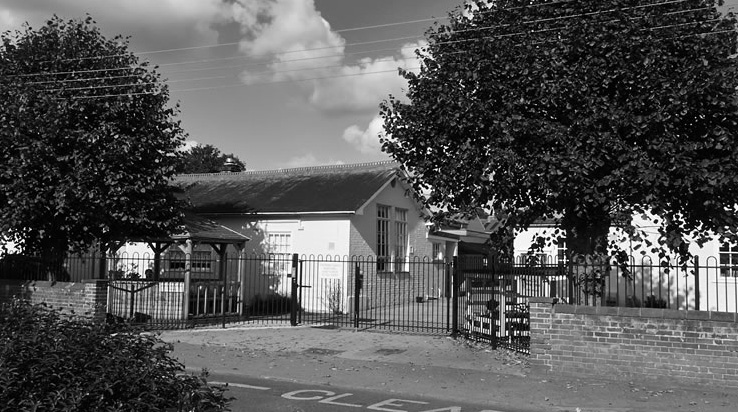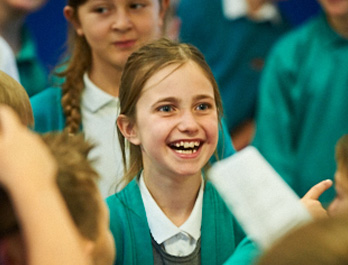
The Background
Bures Church of England Voluntary Controlled Primary School is a warm, inviting one-form entry village school set in the heart of historic Bures on the Essex/Suffolk border – midway between Sudbury and Colchester. The school is proud to state that academic excellence goes hand in hand with personal success for all of their 200 pupils.
The school has worked with RM as their technology partner, for a number of years, with an on-site engineer visiting regularly to provide necessary support. The school has taken a number of RM products and services over the years, and is now looking at RM’s connectivity product for their expanding broadband needs.
The Challenge
When the Prime Minister announced on 20th March 2020 that most schools needed to close their gates to all but the vulnerable and children of key workers from the end of that week, Bures Primary were as thrown as most schools in this country. Whilst they did have some online learning in the school – using both Seesaw and Tapestry – it was clear that neither would carry them through until the crisis had passed sufficiently to allow all pupils to return to the classroom.
Sensibly, the first thing the school did was a survey amongst pupils (and their parents) of who already had computer devices. This identified a number of families where they had just one laptop between three children, mum and dad; and others with no laptops and just a smartphone or two.
They then turned to the software they were using, and realised it was very slow to upload even simple tasks, like a 10-minute read story; and the way they were dealing with queries from pupils was very inefficient. They were printing off material and sending it home, with no certainty that pupils were using it, or any clarity on who was engaged and who was not.
At first they turned to some of the resources that were out there – such as the BBC and Oak National Academy – but on the advice of their RM Account Manager, they looked at Microsoft Teams, and then there was no turning back. One benefit was that the tile already existed on their RM Unify logon screen that they were already using, so it was a natural evolution.
“With hindsight we should have gone straight to Remote Learning, sourcing spare laptops to lend to those families who didn’t have the basics, but we didn’t realise this at the time.”
Vicky Holmes, Class Teacher

The Response
Bures Primary had been looking at Microsoft Teams and Google Classroom for some time, but for budgetary reasons, it was an expense they could not justify. That changed when the virus hit, and – especially – when the DfE announced a fully-funded scheme to provide expert technical support for schools to set up an accredited digital education platform.
With help from their RM Account Manager, the school applied for the scheme, finding it very straightforward to sign up, and before they knew it they were live on Microsoft Teams – finding it the right solution for what was their immediate priority – being able to meet classes online and to begin to deliver some lesson content remotely.
“It could have gone even quicker, but we lost some time in having to survey our current estate. The fact that RM only works in the schools’ sector was apparent in how well they understood our unique needs – it is a brand that is well known and trusted.”
Vicky Holmes, Class Teacher
At the start of 2020, RM undertook research that suggested that many teachers were suspicious of the benefits that technology can bring to a school – the pandemic has hopefully shown that their fears are unfounded. For Bures Primary, this is probably true, and there was an element of having to encourage some teachers to give it a go – in some cases by starting with an oral read story. Staff have since been practising uploading videos to MS Teams to ensure they are ready to deliver fully videoed lessons, should the time come.
“Many teachers were nervous at first about letting their children “into their home” via video – with concerns about what might be sat on the book shelf behind them etc. The reality is that teaching remotely requires different skills, and it has taken some teachers a little time to adapt.”
Vicky Holmes, Class Teacher
Despite the challenges, Bures Primary feel that they did a good job for their children, who proved far more emotionally resilient than many may have expected. That said, it was clear that some pupils needed different levels of support – and that was hard to second guess, or even to react to when it became apparent.
The Lessons Learnt
- Set expectations with parents. This was as much a new experience for parents as it was for school staff and pupils. It’s important that you take them on the journey with you.
- Be Brave and go for it! No-one knew what the right answer was, but doing nothing was definitely the wrong one. Bures Primary feel proud that when they saw Microsoft Teams and their RM Account Manager had shown what the Government were willing to pay for, there was no holding them back.
- You do not need to do it all at once. For Bures School, the initial focus was on meeting classes online. From here they began to deliver some lesson content remotely. Whilst they are yet to fully deliver lessons remotely, they now have the capability to do so, with children trained on using the software and staff practising uploading videos to MS Teams to ensure they are both ready if and when they are required to switch.
- Take a rounded view of your costs. Many schools have resisted investing in technology, but good technology can save you money elsewhere – it can make you more efficient, can help teachers manage their workloads better, and help make savings elsewhere – paper, printing and postage – the costs of all of which can be reduced with a switch to a more digital school.
- You need decent hardware. Like many schools when the virus hit, Bures Primary did not have enough laptops, and those that they had were heading towards end of life. Modern technology is one of those things that is just essential, and all sc hools must find a way to ring-fence some budget to put towards it – and not wait for a pandemic to expose the gap.
- …and a reliable partner to help you through it. Schools are very good at teaching. But they cannot be expected to be experts in everything that happens within a School. Having a partner – in the case of Bures Primary they had chosen RM – means that you have someone else looking out for you – someone to turn to and to guide you as you focus on what you are judged against – how best to engage your pupils.
“Whilst we knew that the right answer was an online Remote Learning platform, many parents like to see printed material – it makes it feel like ‘real lessons.”
Vicky Holmes, Class Teacher

The Legacy
The Coronavirus has brought much sadness to the world. But it has also acted as a catalyst to rethink what is important, and the way certain tasks are undertaken. It has made people stop and think. One of those areas is technology in schools. In many respects this has been one of the successes of the past four months – it has allowed schools t o continue teaching, and has convinced some of the detractors that technology can be useful in a school. The key now is to build on that, and not allow the situation to regress.
Children will need technology skills as they move to Secondary Schools and into the workplace. That should start at the very beginning of their education. They need to be able to touch-type, to be comfortable with a mouse, and to know the good – and the bad – about using the internet. All of this can start in Primary School, preparing them for their future.
“There is a continuum from pre-virus face-to-face teaching… to mid-virus remote learning. Post-virus I am confident we will rest somewhere in between – let’s call it ‘blended learning’.”
Vicky Holmes, Class Teacher
Download a PDF of the case study